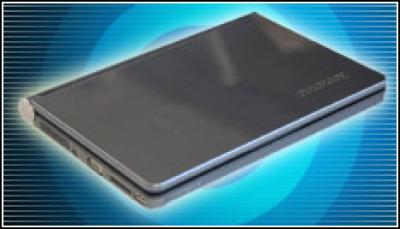Acer has pledged to continue pushing the netbook form factor as its rivals increase their focus on tablet and ultrabook devices.
Netbooks have traditionally been best selling device, thanks to consumer demand for their low price and portability. However two opposing forces have hit netbooks hard, firstly the desire of PC manufacturers’ to push products with higher margins. For example in mid-2009, at the height of the netbook craze, Microsoft CEO Steve Ballmer told the audience at his company’s Financial Analyst Meeting that the industry was already looking at higher-priced products capable of the same lightweight performance
The second factor has been the emergence of tablets as the most sought after device for many people on the go.
Netbook Commitment
In the wake of that, many manufacturers shifted focus from netbooks to other product areas. Current rumours hint that Samsung is considering an exit from the segment altogether. However, Acer evidently sees the developing world as a market for the form factor.
 “There is still demand for netbooks in developing countries such as Indonesia and India, where netbooks have become critical tools among students for information education,” Scott Lin, corporate vice president and president of Acer’s Taiwan operations, is quoted as saying in a Focus Taiwan report 27 November. “Acer will absolutely keep making netbooks.”
“There is still demand for netbooks in developing countries such as Indonesia and India, where netbooks have become critical tools among students for information education,” Scott Lin, corporate vice president and president of Acer’s Taiwan operations, is quoted as saying in a Focus Taiwan report 27 November. “Acer will absolutely keep making netbooks.”
Acer is also joining in the rush to develop ultrabooks, or laptops that adhere to the same thin-and-light design as netbooks, only with more powerful hardware. Its Aspire S3-1 will compete against Asus’ UX21, Toshiba’s Dynabook and other models expected to hit the market full-force in coming quarters. This January’s Consumer Electronics Show (CES) in Las Vegas will feature as many as 50 ultrabook models from various companies.
Tablet Killer?
Intel remains an aggressive driver of the nascent ultrabook phenomenon, working with those manufacturers to ensure the devices conform to relatively strict standards.
In turn, the emphasis on ultrabooks is a sea change from this time in 2010, when most of the heavy-hitter manufacturers were busy toting an Android-based tablet. However, many of these “iPad killers” arrived on store shelves only to gather dust, sometimes selling well as niche products but certainly not challenging Apple’s millions of tablet sales.
Not to be outdone, Acer has explored the tablet market with products such as the Iconia Tab A100 and Windows-powered Tab W500. Even as it tries to carve off its own share of such newer markets, though, it seems unwilling to wholly abandon an old one.




